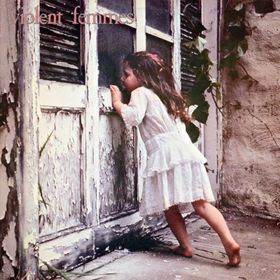Yesterday, the mighty Fleshtones released
their newest album, Wheel Of Talent, on Yep-Roc records. This is the 22nd album for the boys from Queens, and the first track from it to reach the light of day is a bit of a nostalgia/tribute in honor of another pretty damn good NY band:
Haven't picked up the new LP myself yet (soon...soon), but I have been giving some airtime to my favorite from their vast catalog, 1983's magnificent
Hexbreaker!
The Fleshtones' brand of garage rock has always been about the party. They're having fun singing and playing and they want to make sure you're having fun, too. You can't not smile while listening to the Fleshtones, and you better not try and sit still in the corner - this is get up and dance around like no one is watching music, and it never shang-a-langed so brightly as on this, their second full length album for
I.R.S. Records (a debut album was recorded circa 1979 for
Marty Thau's New York-based Red Star Records, but only the
"Amercian Beat" single saw release before that label collapsed. I.R.S. snapped the band up; those original Red Star masters were later released as
Blast Off!)

With echoes of sixties nuggets like The Blues Magoos, The Standells and The Animals (Peter Zaremba's voice at times does sound a bit like Eric Burdon's) yet still reflecting the sounds of contemporaries such as New York Dolls, Suicide and, yes, The Ramones, The Fleshtones carved out their own sound, dubbed "Super-Rock!" That sound is immeditaely defined by the jarring guitar crash leading up to Zaremba's shout of "CHA!" that kicks off the opening track,
"Deep In My Heart." Launching into a reedy farfisa-driven rocker that shakes you awake and culminating in actual crashes of thunder, the opener seems tough to beat. But there are plenty of party tricks up these guys' sleeves.
Care for some bubblegum?
"What's So New (About You)?" is stick-to-your-teeth sugary. A fuzz guitar, a clap-along melody and that ever-present farfisa will leave you wanting more of this gooey sugary confection, but instead you're being whisked downtown on an ambulance ride:
"Screamin' Skull" is a mildly harrowing account of a drug trip gone bad, but damn if you can't sing along with it. After a wailing-sax instrumental break (
"Legend (Of A Wheelman)"), you're hit with the punk rave-up
"New Scene" and then the absolutely excellent title track. In another, more perfect world,
"Hexbreaker" could have been
"Louie, Louie." A basic, repetitive guitar line, a bit of a soulful strut, and a recording that sounds like it's taking place at an actual party - it's wonderful stuff, and by the end of side one, you'll wonder if they can top what they've done so far.
The answer is immediate, as side two opens with the incredible
"Right Side Of A Good Thing," perhaps the most Fleshtones-sounding song The Fleshtones ever did (and that is saying something, my friends!) With its hysterical falsetto chorus and bubbling bass, it's a nearly perfect distillation of everything The 'Shtones stand for: fun, positivity, and damn good music.
"Brainstorm" and
"New Scene" keeps the party going, while
"This House Is Empty" slows things down about a half step between them. The album ends with the only non-original, John Lee Hooker's
"Burning Hell," which is given the full Super-Rock! treatment and as a result is the perfect way to close out the album.
Few albums are as strong start to finish as this one, and while The Fleshtones can sometimes be guilty of retreading the same sounds, there's a reason why you stick with what works. On
Hexbreaker!, everything works. Toss it on the turntable and you've got yourself an instant party - what more could you ask for?
(
Hexbreaker! was
issued on CD as a 2-for-1 with Speed Connection - Live In Paris '85 in 2010.)




















